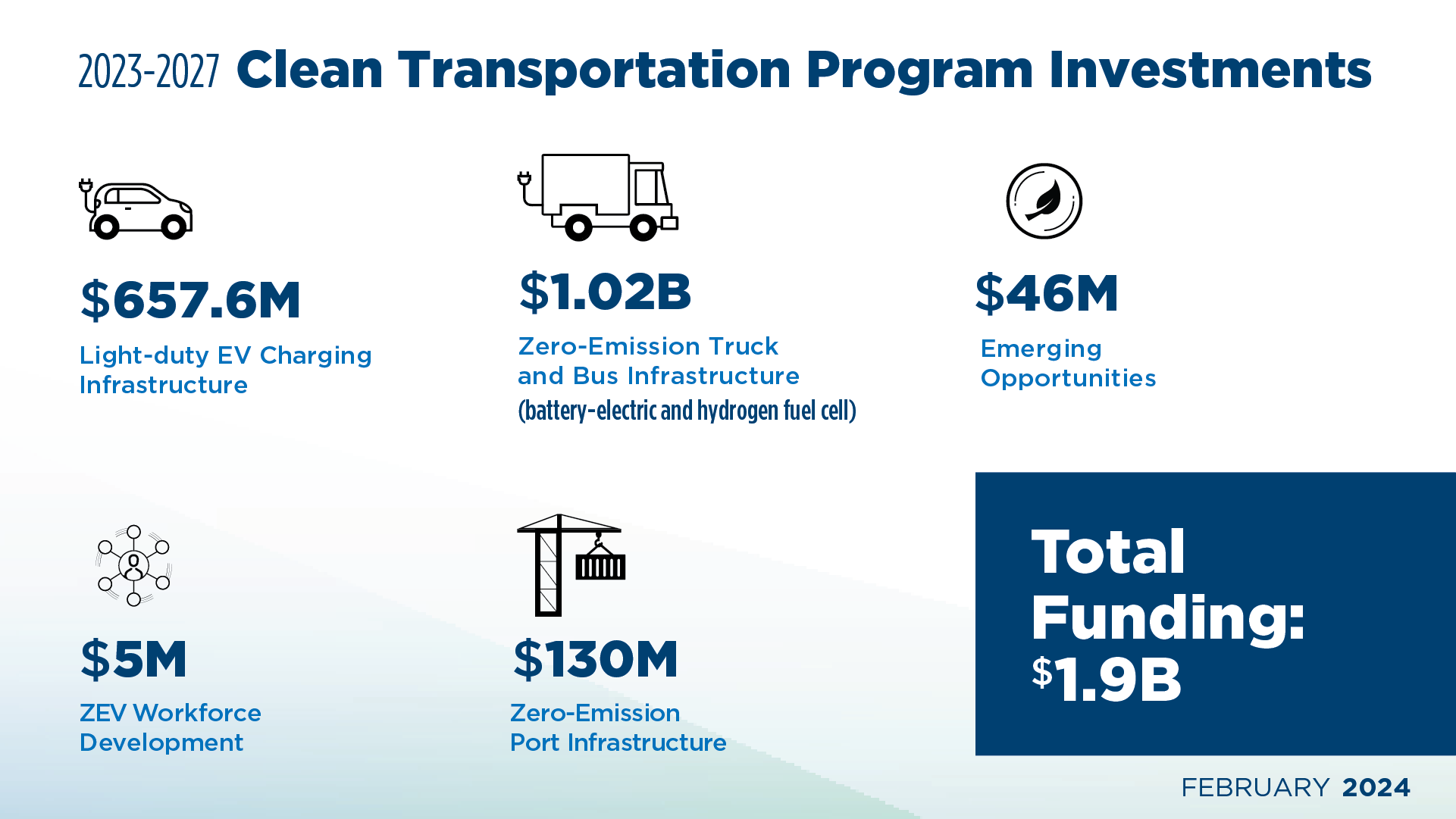The California Energy Commission approved a $1.9 billion investment plan aimed at accelerating progress on the state’s electric vehicle charging and hydrogen refueling goals.
“These investments will help deploy infrastructure for light, medium, and heavy-duty zero-emission vehicles across California, creating the most extensive charging and hydrogen refueling network in the country,” it said.
The plan details how the CEC’s Clean Transportation Program will spend $1.9 billion in state funding over the next four years, with at least 50 percent targeted to benefit priority populations.

The funding is part of the $48 billion dollar California Climate Commitment, which includes more than $10 billion for ZEVs and ZEV infrastructure. The state has also received billions from the Biden-Harris Administration for clean transportation.
The funds approved will result in 40,000 new chargers statewide. Nearly 94,000 public and shared private chargers are installed today. Combined with previous investment plans, funding from the federal government, utilities and other programs, the state expects to reach 250,000 chargers in the next few years. This is in addition to private installations and home chargers.
The funds will become available over the next four years and distributed to projects through competitive grants. Projects include direct incentive and rebate programs for businesses, non-profit organizations, tribes and public agencies.
EV Infrastructure Assessment Results
The CEC also approved the second Assembly Bill 2127 Electric Vehicle Charging Infrastructure Assessment.
The assessment projects how much publicly available charging infrastructure is needed to meet demand. Results show:
In 2030:
- 7.1 million EVs need 1 million chargers.
- 155,000 electric trucks and buses need 114,500 chargers.
In 2035:
- 15.2 million EVs need 2.1 million chargers.
- 377,000 electric trucks and buses need 264,000 chargers.
Last year, Governor Gavin Newsom signed a bill extending the Clean Transportation Program and providing a dedicated source of funding for ZEV infrastructure through 2035.
To improve the EV charging experience, the CEC is developing first-in-the-world state regulations for charger reliability and reporting.
A stringent performance standard will apply to all new publicly funded infrastructure and the chargers will be required to disclose operational data to help drivers make more informed choices.

